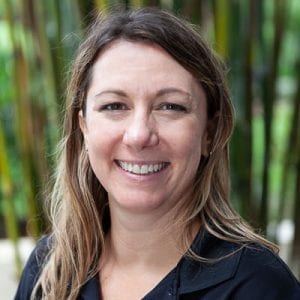New Grant Funds ‘Boots on the Ground’ Approach To Studying Wetland Loss

A new grant from the National Academies of Sciences will fund a “boots on the ground” approach to evaluating how severe wetland loss impacts the recreational fishing industry.
Kristy A. Lewis, Ph.D, and her team at the Lewis Lab of Applied Coastal Ecology received the $110,662 grant in collaboration with Louisiana State University to help understand how restoring the flow of the Mississippi River Delta into the expansive wetland system impacts coastal fisheries.
“The people of Louisiana take great pride in their wetland system, yet it’s home to the highest rate of wetland loss in the United States,” said Lewis. “Every 120 minutes there is a football field of marsh washed away.”
Loss of the marsh is hypothesized to negatively impact the coastal fisheries that are a way of life for many communities in southern Louisiana. And, the lost of wetlands has already spurred the first climate change refugees in the U.S. in Isle de Jean Charles, Louisiana.
The levees built to reduce flood damage to lands and communities adjacent to the Mississippi River have kept people and property mostly safe for decades (Hurricane Katrina being a recent exception). However, these artificial structures also cut off the historical delta cycle that replenishes sediment and nutrients to the wetlands, causing massive erosion and loss of habitat.
The team will use ecological models and information gleaned from Traditional Ecological Knowledge (TEK) to conceptualize how wetland restoration projects will impact local livelihoods, especially those of fisherman. TEK takes input from fishermen about their lived experiences as vital information that can be incorporated into the models.
“Traditional Ecological Knowledge is driven by the people,” said Lewis. “We will be working with the local fisherman and community members who directly use this system to try and figure out how human activities, natural processes and disturbances all work hand-in-hand affecting the sustainability of the marshes.”
The collaborative efforts began Sept. 1.
“I received my Ph.D in Louisiana so a lot of my work remains intertwined with the state,” said Lewis. “I consider Louisiana to be my second home, and I feel very connected to what we are doing and knowing that we will be making a difference in the local ecology of the state.”
